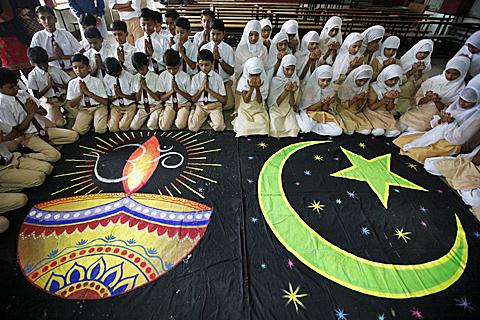
Ishwarbhai R. Desai, Advocate, Ahmedabad
Ishwarbhai R. Desai, an advocate at the metropolitan court in Ahmedabad was vice–president of the local Bar Associa tion in 2002. He lives in Saijpur Bogha near Naroda Patiya and Chamanpura, the location of some of the worst massacres during the 2002 genocide.
His colony has about 200 Muslim families, mainly poor, and 500-700 Hindu families, mainly from the Rabari community. After the disturbances began in Ahmedabad, the Muslims were scared. Ishwarbhai has a plot of land in the colony and the 200 families came there for refuge and help. For three days, these families stayed there and Ishwarbhai and his neighbours fed and protected the Muslims.
As news spread about this safe haven, families from Naroda Patiya, Chamanpura and other disturbed areas also came here for shelter. They were also taken in and provided for by the residents of the society through their personal resources. In this way, about 500-600 people were sheltered there. A temporary but effective relief camp was run for displaced persons.
As word spread and groups like the BJP/Bajrang Dal/ VHP/ RSS got wind of the fact that Muslims had collected there, large mobs came for them. Some of the mob leaders were personally known to Ishwarbhai. All of them had only one demand – that Ishwarbhai turn the Muslims out. But Ishwarbhai and his neighbours refused. They were adamant that they would not let anyone touch the Muslims who had sought refuge there. "We have grown up together, our families have known each other for the last 70-80 years. How can we desert them now?" Ishwarbhai asked the Hindu mob leaders. Even as he tried talking to persons in the mob and engage them in dialogue, other colony residents were prepared to face and repulse the mobs if necessary. In the three days that the Muslims took shelter there, on about a dozen occasions, mobs grouped and re-grouped but Ishwarbhai and his neighbours remained firm.
Some in the colony were concerned that they might not be able to hold out for long against a huge mob and that might result in a massacre worse than that at Naroda Gaon and Naroda Patiya. They were also worried that in such an eventuality, their property would also be damaged. Finally, Ishwarbhai managed to contact the police commissioner PC Pandey and three days later, seven or eight police vans were sent to the colony to take the Muslims to the Shah Alam camp. However, the Muslims were not willing to trust the police completely and they insisted that Ishwarbhai and his friends accompany them to safety of the camp.
Even after the Muslims had left for the camp, a mob came to loot Muslim property and set it on fire. Once again, Ishwarbhai and his neighbours intervened. They were determined that not a stone would be hurled at a Muslim house, not a nail would be pulled out. For another 10 days, they were pestered by the mobs but finally the misguided Hindus realised that there were unlikely to get what they wanted and left them alone. When the Muslim families returned two months later, they found their houses in exactly the same condition as they had left them. However, the mobs did damage the mosque behind the colony.
For his troubles, Ishwarbhai had to face questions and taunts from his friends and colleagues for months. But the Muslim neighbours whom he rescued are still grateful to him and consult him in all major decisions. Even today, they have full faith in Ishwarbhai and none of the Muslim families have felt the need to move out to a safer place.
Archived from Communalism Combat, June 2004 Year 10 No. 98, Cover Story 3